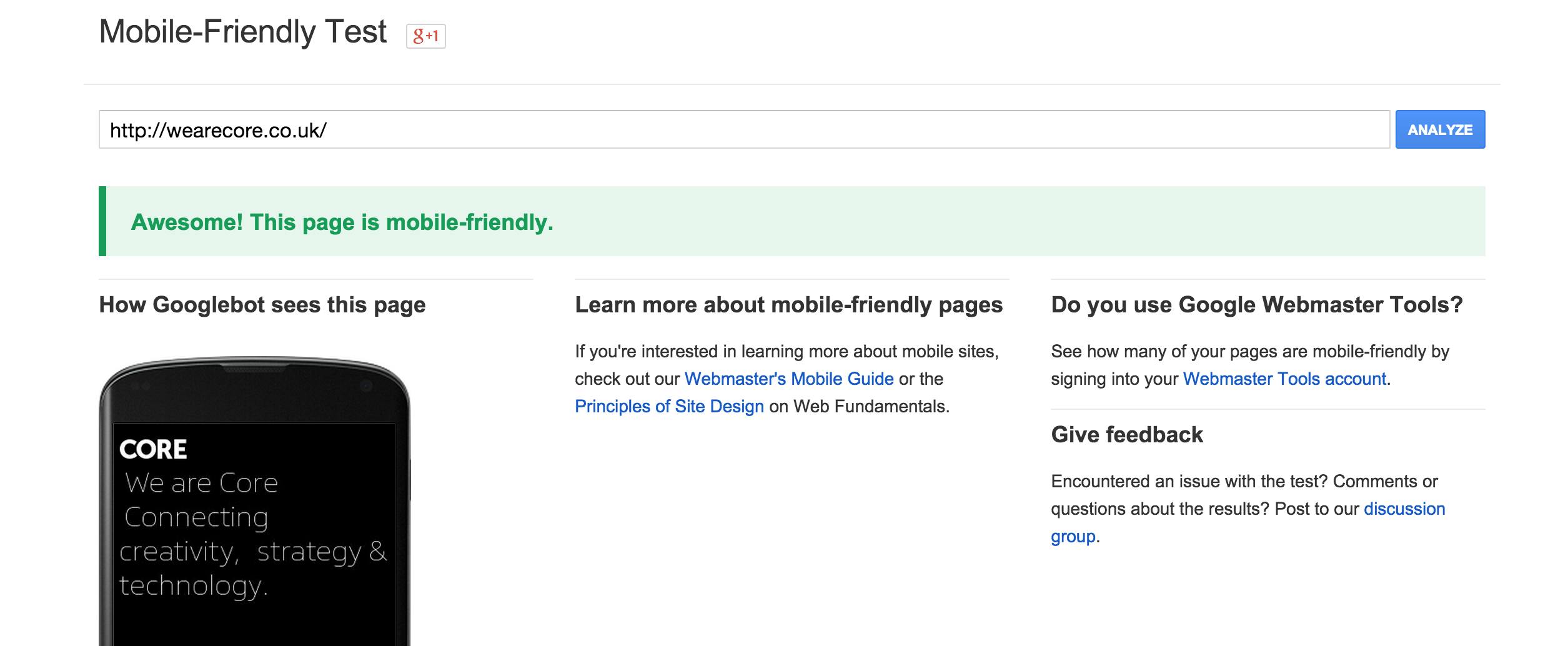Mobilegeddon?
The SEO community has been all abuzz as of late, which usually means one thing; algorithm drama. This time it’s the turn of mobile which has the spotlight shining bright. So what’s really going on?
What’s happened?
On 26th February 2015, Google made the announcement on its official Webmaster blog that it would be “expanding our use of mobile-friendliness as a ranking signal”. It also made the very unusual move to announce when this algorithm change would begin taking place; April 21st.
What’s affected?
In terms of its direct implications, from what we can tell Google will be rewarding websites which have optimized for mobile usage, be that responsive or 'm.'. Now to anyone who's been listening to Google or recent features they have been pushing lately (including it’s mobile-friendly labels which have appeared on mobile Google SERPs), this will not have been a surprise.

From a Google POV, user experience is key and those sites which don’t cater for their mobile visitors don’t deserve the best rankings. In short, those which don’t have a site optimised for mobile usage may well see their organic mobile rankings drop.
In terms of what Google deems ‘mobile’, that may be a little harder to determine. Tablets may exist in the grey area of this update, but from recent trends it may be safer to presume tablets will be included as mobile in this update.
How big an impact will it have?
That really depends on the nature of your business. At a recent conference, a key trends analyst from Google stated that this update will be bigger than the much-feared Panda and Penguin updates. Although, he also importantly noted that the algorithm change will only affect your mobile rankings and not your desktop terms.
‘So if I don’t rely on mobile visitors to my site for conversions, I’m alright then?’
Well maybe in the very short term, but in the long term you're probably sticking your head in the sand. If you’re not providing for your mobile visitors then you're not providing a good user experience in general and if metrics like bounce rate and other user engagement signals take a plunge, this will affect your desktop rankings.
What should I do?
In the long term, there must be an ambition to optimize your site for mobile. This becomes a greater priority if you know from Google Analytics that you rely on your mobile visitors for sales or conversions.
If you want to check to see if your site is optimised for mobile in Google’s eyes, they have launched this easy-to-use Mobile Friendliness tool. Simply type in a URL from your site and Google will give you a binary response of yes or no (and an Americanised ‘Awesome’ to make you really feel good!)

In general, this update is a solidifying of Google’s increasing emphasis on mobile, but really you should be thinking of your visitors’ user experience anyway. Take the time to flick through your website on a mobile device and really think, would I use this website?


